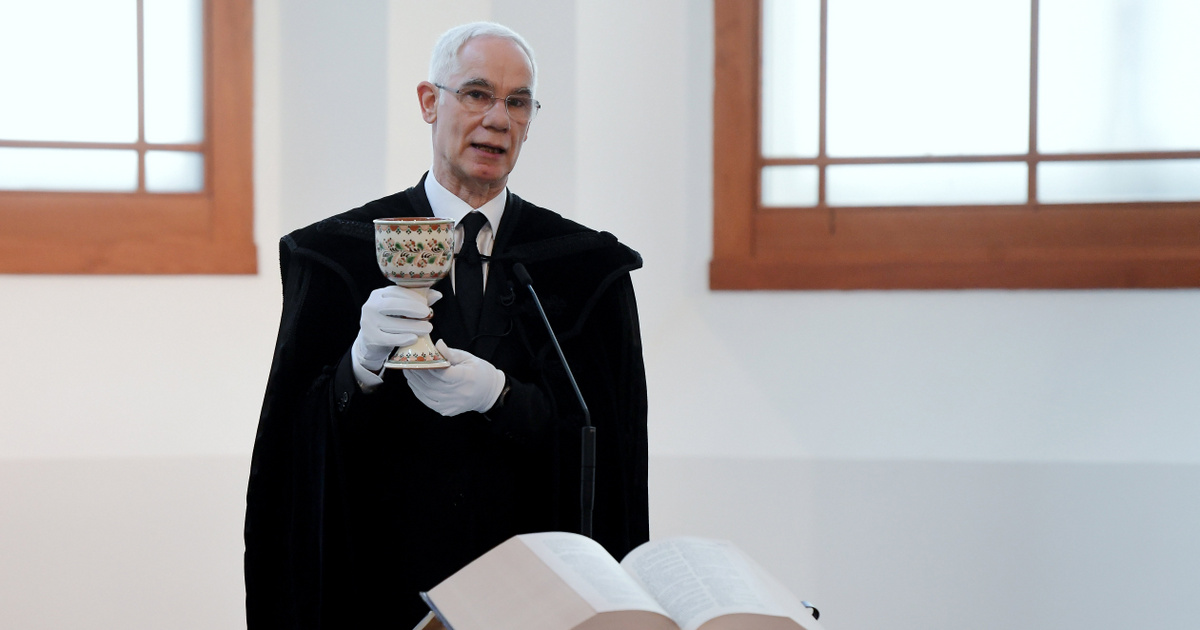Zoltan Balogh, pastor of the Hungarian Reformed Church Synod, held a ceremony at the Reformed Church on Holland Street in Budapest on Sunday morning. The Reformed Bishop set up the service in both Hungarian and German, stressing the importance of including in our prayers all that is missing:
Closeness, freedom to meet, joy, healing.
Also talk about the fact that even though carelessness and despair pervade everyday life, let’s say thank you for what we have, let’s rejoice over Easter, and let love pass through everyone.
He added, at the same time, to thank the many who work every day to prevent the Coronavirus from winning and not to allow the epidemic to spoil this beautiful holiday.
The resurrected Jesus says over and over, “Fear not, I will go before you!” He said in the service of worship without believers, and he also spoke of this year’s celebration that was particularly encouraging, with God standing outside the temple, anywhere and anytime .. to meet alive.
On this feast, we must not go out of our daily life now, but allow Jesus to come there.
It is not the sacred moments that must be gathered together in some mean sordid circumstances, but we must be allowed and we may receive the strength and love of God.
Adding that even when we are impatient, for what is much is still much, in conclusion, in constraint, in tribulation. Even when he is captured with despair, “somehow life is always unsolvable,” he added, adding that the risen God “awaits us especially when we think about sickness and death,” he addresses and says over and over, “Don’t be afraid. I go before you!”
Jesus also “walks before you when you find the other, the other person’s hand, his heart, his eyes.”
When we can, once again, look with curiosity, interest, and understanding at someone we do not like, or who we see as an obstacle in our lives, or when our work brings not only the correct result of the energy we invest, but a blessing, it will be a blessing act.
He said. Zoltán Balog also spoke about whether a person usually thinks at least once in his or her life about whether there is another person next to him who is more of him or her and has a great influence on his or her life.
“And when our life balance is disturbed,” “we ask all our lives, we question ourselves.” Because “when we ask about the whereabouts of God, we are actually thinking about where God is, and who“ perhaps he can answer the question of what will happen to me, and what will happen to us ”.
However, you must look for God in the right place to meet. Not from the dead, the angel says to the women who come to Jesus’ tomb. However, how many times and how many people search for it there, among the dead, in the past, what appears to be a lost culture, in what memory is, a history of bankruptcy, and failure, as mentioned.
“We ask God there, wait there for an explanation,” “Where were you when you should have been here?” “But we are searching there in vain.” He added that the angel does not even send disciples and women to the temple. Although the church is a good place to meet, it can alienate you at times, perhaps the threshold is too high for those who are unfamiliar with it. And those who are accustomed to believe that without a ritual situation, the encounter with God and man can be “second class” at most.
Jesus, crucified and risen from the dead, tells his disciples to return to Galilee from where they came and then see him there. Galilee was not a sacred place, it had a bad reputation, and it was considered a land of unbelief and paganism. But this was their “space of life,” so Jesus was waiting for them. And “waiting for us there” in our life.
Our world, our little country, is not a damned place, not a land of nations, and our lives await here. As the wise teacher says, God is always the place to be received. This is how our life, our Majesty, will become a temple
Zoltán Balog added in his Easter address.












































